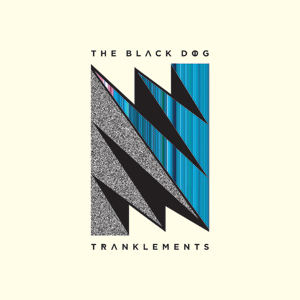The Black Dog Tranklements
Frequently mentioned in the same breath as its contemporaries Aphex Twin, Autechre, LFO, et al, […]

Frequently mentioned in the same breath as its contemporaries Aphex Twin, Autechre, LFO, et al, The Black Dog has been granted a kind of legendary status while remaining somewhat obscure to the “uninitiated.” Something about the group’s exacting sound is just beyond the grasp of a casual listen, and its core audience tends to be fans steeped in electronic music, rather than those just getting their feet wet. As such, Tranklements should appeal to the trio’s diehard followers—fans who will catch the points of reference and history behind the work. It shows shades of brilliance, paying homage to downtempo and ambient techno of years past with ample accuracy and execution, but feels like more of a relic than a revolution—a work that stands on its own merit, but belongs to another time.
The essential nature of Tranklements—arrangements pared down to their very framework—is hard to deny, but often causes the album to sneak by without leaving much of an impression. It’s heavily loop-driven, and the use of sound sets that feel like the last couple of decades often detracts from the heady atmosphere. (Though, perhaps that’s a complaint born of being surrounded by the opulent drapery which shrouds the work of most contemporary producers.)
Yet occasionally an element in a track will buck this greyscale ambience. Partway through “First Cut,” a swimming, percussive sound buzzes in from behind a backing synth line—providing a sudden point of focus and a memorable theme. “Pray Crash II” takes a quick left turn into driving techno, which effectively changes the album’s momentum. Indeed, The Black Dog’s new record is accented by these brief interlude tracks (called “Bolts”) that exhibit wholly fresh ideas, even if they are unfulfilling. It may be hard to judge these one-minute-or-less pieces on the same level as the rest of Tranklements, but their potential is plain to see. Album closer “Spatchka” resolves the dichotomy between engaging interludes and unvaried tracks, sounding like a seven-minute extended version of one of the “Bolts.” It’s stunning—an aching melodic composition layered in echoes of pads and a chord change that renews itself with clever voicings. It’s simple while avoiding repetitiveness, instead breathing organically in its effortless atmosphere.
If anything, Tranklements feels like an album that would’ve enjoyed seminal status if not for its place in time. It hits all the marks for an IDM-inspired, ambient-techno record, and there is certainly an audience looking for this kind of lockstep adherence to an era and aesthetic they’ve deemed sacrosanct. This isn’t to say the members of The Black Dog should be considering the state of buzzy electronic music in their compositions per se, but Tranklements is straining to belong somewhere; in the process, it ends up sounding more like it wants to be defiant instead of inspired.

